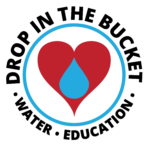Lobule Village is now Open Defecation Free
As uncomfortable as it is to think about an entire village with no toilets, imagine how uncomfortable it would be to live like. The people of Lobule Village didn’t have the privacy or comfort of using a toilet and the entire community was living just steps away from their own waste
A Vision For Giving Tuesday
Four years ago, he and his parents didn’t have much hope for his future. Now he dreams of being a musician, so that he can share with people the happiness he experiences when he hears music.
Sometimes, It Just Can’t Wait – World Toilet Day
Of course, the most effective way to combat diarrhea and other sanitation related diseases is prevention and the best way to achieve that is through education.
Rhoda Anayo VSLA Group Member
Rhoda has big plans for the future of her business. She wants to start cultivating rice in the nearby swamps, which would make her even more money and provide her community with a steady food staple.
Global Hand Washing Day 17th October 2015.
This year’s theme was “Raise a Hand for Hygiene.” To commemorate the cause, Drop in the Bucket spent the day at the Kudo Primary School in Torit, South Sudan.
Our New Drilling Compressor
Kyere Township Primary school educates more than 1000 children. The well will also benefit 2 surrounding villages that combined have a population of more than 1,000. Before this well was drilled, the nearest source of clean water was more than 2 kms away
DROP, One World Futbol and Etop Radio
A school that does not have active extracurricular activities like football, netball—or which lacks a nearby water source—will have low pupil enrollment, attendance and retention, especially for girls. Games and clean water keep children at school.
Madera School For The Blind Update
So far, your donations have build two sets of bathrooms complete with flushing toilets, sinks and even showers. The 100 boys and girls living at the school finally have access to decent sanitation for the first time in the school’s history
Drop in the Bucket and the One World Play Project
DROP already works to improve sanitation in schools throughout the region by building toilets and sinks and showers and by building clean-water wells. When children are healthier, they’re able to attend school regularly. Educational experts also believe that play is an integral part of school.
Santa Monica Observer Article About Drop in the Bucket
“Literally everybody was sick with something,” said Stacey. “And almost all of it was caused by the dirty water they were drinking. We knew we had to do something to help but we knew we had to get to the cause rather than just continuing to treat the symptoms.” The solution was clean drinking water
